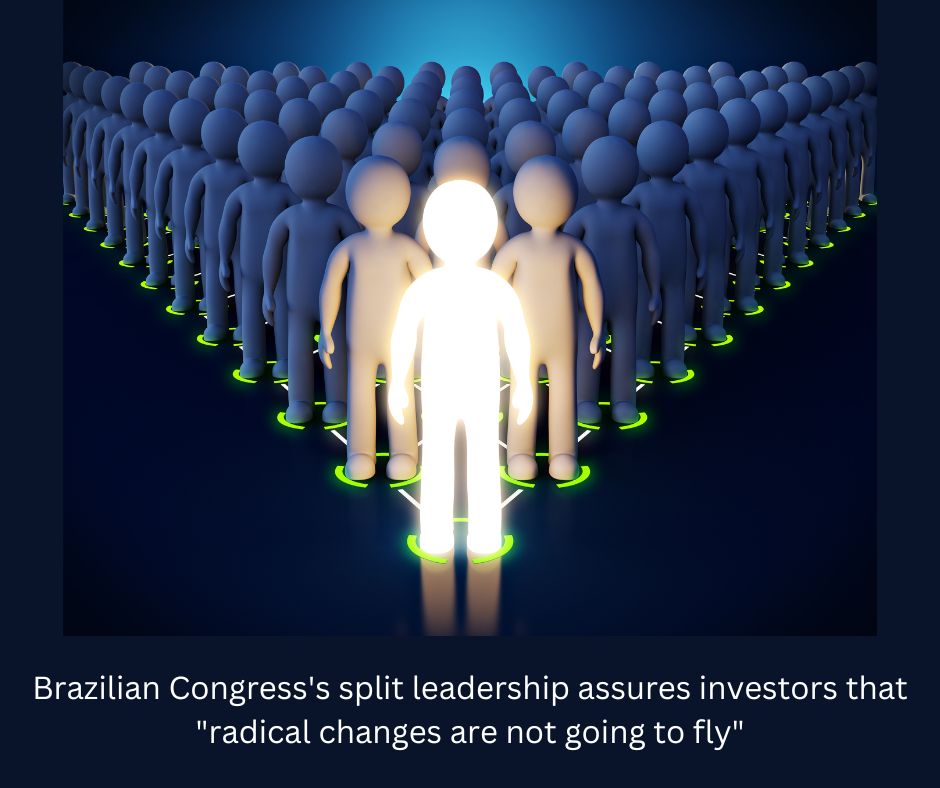Summary:
Brazil’s Congressional elections emphasized the country’s extreme political polarisation. Both left, and right parties gained seats but not enough to take control of the legislature. The next president must build coalitions to push his agenda through Congress. Most of the lost seats were taken by center-left and center-right parties. The bloc is led by Arthur Lira, the lower house speaker, and will hold around 235 of the 513 seats.
The Bovespa stock index increased by more than 5.5% by Monday night and by 0.1% on Tuesday. The real dropped from R$5.41 to $5.17 per dollar from Friday to Tuesday. Neither the Liberal party nor the Workers’ party has majorities in Congress.
Brazilian Congressional elections emphasized the country’s extreme political polarisation, with gains made by both the left and right parties but not enough to take control of the legislature.
The outcomes of the elections on Sunday, which coincided with unresolved presidential polls, indicate that the nation’s next leader will need to make compromises and build coalitions to forward his agenda in Congress.
According to Oxford Economics’ Marcos Casarin, chief economist for Latin America, “radical changes are not likely to fly in this new Congress.” Investors should be pleased since it improves the likelihood of a moderate government while decreasing the possibility of one that is radical.
Sunday’s news was dominated by the presidential election, in which leftwing front-runner Luiz Inácio Lula da Silva won 48.4% of the vote against incumbent rightwing leader Jair Bolsonaro’s 43.2. The election will proceed to a runoff on October 30 because neither candidate received more than 50% of the vote.
Regardless of who is elected, the legislative results will have a significant impact on whether the next president’s program is successful or not.
Bolsonaro’s Liberal party won handily, increasing its representation in the 513-member lower house and the 81-member Senate from 76 to 99 members.
Bolsonaro can rely on the backing of roughly 23 senators, including the Progressive and Republican parties, which are in alignment with him. This falls short of the three-fifths majority required for constitutional amendments and the simple majority of 41 needed to pass laws. Most structural reforms in Brazil, including altering the tax code or the administrative state, call for changes to the constitution.
The left-leaning Workers’ party of Lula increased their representation, rising from 56 to 68 seats in the lower house and from 7 to 9 seats in the Senate. The former president might rely on approximately 14 senators in the upcoming legislature, which enters office in January, including loyalists.
Most of the lost seats were taken by centre-left and centre-right parties, including the Democratic Labour Party and the formerly dominant Brazilian Social Democracy Party.
Carla Zambelli, a federal senator of the Liberal party who was re-elected on Sunday, claimed that the election “represents a shrinkage of the centre, proving that Brazil is developing politically.”
The right has grown significantly, and she was confident that this combination would benefit the [plan] we must forward.
Bolsonaro’s current allies, The Centro, a significant non-ideological bloc, will continue to rule and be essential to passing legislation.
The bloc is led by Arthur Lira, the lower house speaker, and will hold around 235 of the 513 seats in the upcoming legislative session.
If Lula prevails, he will have to deal with the Centro, which frequently exchanges support for cabinet positions or budgetary allocations to be used in their local areas.
The former president’s close associate and governor of the northeastern state of Bahia, Rui Costa, expressed confidence in Lula’s “ability for conversation and to engage even with political opponents.”
“We must distinguish between the right and the radical fundamentalist right known as bolsonarismo. This cult exudes hatred and has no regard for democracy.
Lira has been direct about what is required to enact legislation, stating that it is either a decision between allocating budgetary resources or giving lawmakers monthly cash handouts. While Lula was in office in 2005, a controversy over this kind of vote-buying nearly brought down his presidency.
The budget or returning to the monthly allowance are the two options. The National Congress can be influenced in one of these two ways. I like the budget more,” Lira stated in a Globo News interview on Monday.
The budget for the following year includes R$19.4bn ($3.2bn) set out for these legislative stipends, up from R$16.7bn ($3.2bn) last year.
Investors well received the election’s outcomes. The Bovespa stock index increased by more than 5.5% by Monday night and by 0.1% on Tuesday. The real dropped from R$5.41 to R$5.17 per dollar from Friday to Tuesday.
According to Mariam Dayoub, chief economist at Grimper Capital, “investors appear at ease by the composition of the new Congress, particularly in the Senate, since it minimises the probability of an elected Lula backtracking on reforms or enacting more extreme policies.”
Congress is still skewed to the right, which should prevent attempts to enact more interventionist policies, even though neither the Liberal party nor the Workers’ party has majorities.
Dayoub stated that the next president would need to maintain a “pro-business” stance given the makeup of Congress. Still, reforms, such as a tax overhaul and microeconomic adjustments, had a high chance of being passed.
Many international investors are most concerned about the country’s financial situation, mainly because neither the presidential contenders nor Congress seems committed to maintaining integrity in the public accounts.
Portfolio manager at William Blair Investment Management Jared Lou remarked that populist administrations in Latin America had faced numerous difficulties due to intense social demand to redistribute. Spending and inflation may go out of control if fiscal policy is not stable.
Analysis by: Advocacy Unified Network

